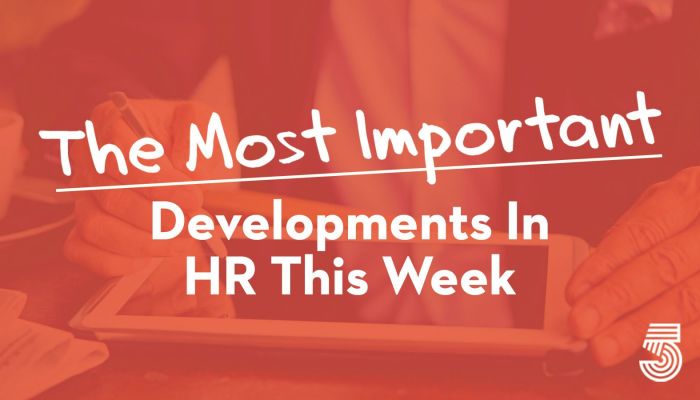The M.I.D., as we call it, is curated by our editorial team from more than 50 news sources. Like a lot of good ideas, this started as something I wanted for myself. If I can’t read everything, I at least want to stay abreast of the most important developments.
This week in HR, the Great Resignation started to morph into the Great Regret, upskilling was in the news again, people (finally) realized how important career development is to Great Resigners, and Slate offered some ideas for motivation for freelancers (and remote workers).

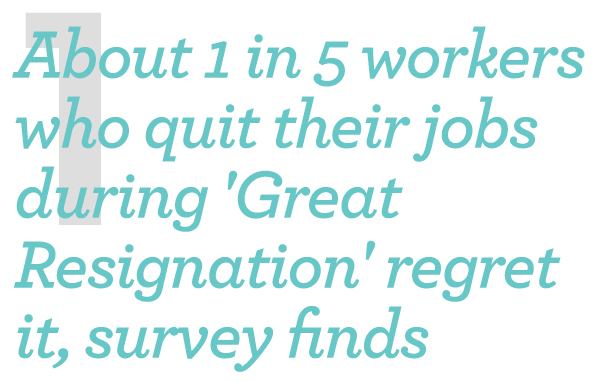
A recent survey found some regret among the 47 million people who quit their jobs during last year’s so-called “Great Resignation.” About one in five of those people who resigned during the pandemic say they regretted it, according to a recent Harris Poll survey for USA Today. Many of them say they wanted more pay and responsibility — but then realized their new gig wasn’t the dream job they wanted. “Those of you who are unhappy with the move, it’s probably because you were just moving too fast,” LinkedIn career expert Catherine Fisher said in an interview Monday on “CBS Mornings.” Fisher said there’s some regret on both sides as both employees and employers may have moved too quickly. “What happened is that these companies were really trying to fill vacant roles that had been sitting for a long time, so they shortcut the system,” she said. Fisher said some workers were lured into new jobs by big salaries but didn’t take into account the work conditions, work culture, job responsibilities, and other “right questions” that typically come up in the hiring process. CBS News

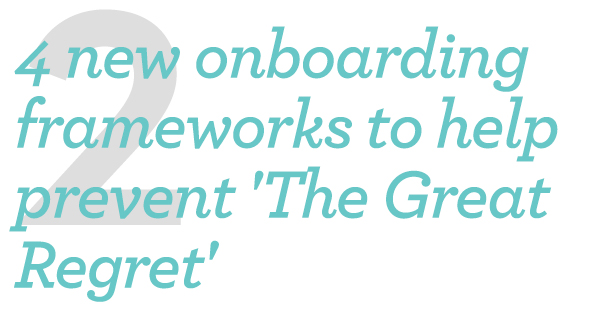
U.S. employers are not making the grade when onboarding new employees in today’s COVID-driven hybrid/remote work era, according to new research from Eagle Hill Consulting. Specifically, recent new hires report that their onboarding fell short in adequately providing information about many of the basics that employees say they need to be successful, including understanding relationship building (71%), organizational culture (62%), how to use technology to do their job (54%), and their benefits (46%). The findings, based on the Eagle Hill Onboarding Survey 2022 conducted by Ipsos in February, included 782 respondents from a random sample of employees across the U.S. They all had started a new job in the last 18 months. The research also found that only 50% of workers expect to be at the same job three years from now. Also, about 49% of employees who started a new job are not getting trained in person — it’s either virtual (31%) or hybrid (18%). “Onboarding is so much more than paperwork and checklists,” Melissa Jezior, president and CEO of Eagle Hill Consulting, says. “What you don’t want is for your company to become ‘The Great Regret’ for new employees because of an onboarding failure.” HR Executive

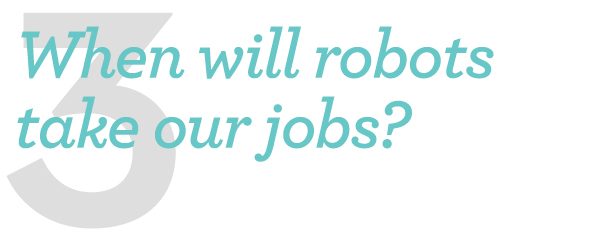
For decades, robots have worked alongside humans. In the auto industry, for example, they’ve long been the most precise and reliable welders and painters. But, with the explosion in artificial intelligence, robots are coming to understand more complex, nuanced tasks. And they are increasingly able to navigate, both inside and outside. In agriculture, robots are not only plowing fields, but can now recognize weeds and zap them with lasers. In hospitals, robots are doing everything from fetching supplies for nurses to helping surgeons direct their instruments more precisely. A 2020 World Economic Forum report predicted that robotics and automation would displace 85 million jobs globally in the coming five years. Yet, it also predicted that the technologies would create 97 million new jobs — generally ones requiring more skills and education. Sure enough, that’s creating a lot of very-human anxiety. A 2021 Morning Consult poll found that 48% of Americans fear that automation will reduce the number of jobs. That fear was higher among adults earning less than $50,000 annually and those without a college degree. Fast Company

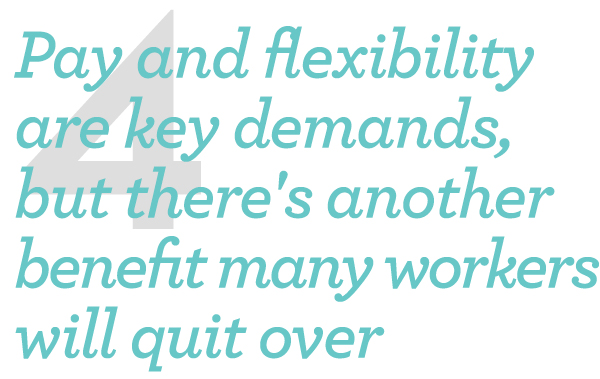
In a job market punctuated by an abundance of openings and soaring salary offers, employees have a tremendous amount of leverage. While there’s been a huge focus on their calls for higher pay and more flexibility, there’s something else many workers are demanding: educational and career growth opportunities. And they aren’t afraid to leave their current employers to find them. That’s according to a new survey of more than 1,000 professionals in both the U.S. and Australia conducted by Southern Cross University. According to the study, 68% of workers said continuing skills development was important to their career, second only to personal growth (77%). About 30% of employees said they are very likely to seek new employment in an effort to find continued education. The study echoes what recruiters and hiring experts have consistently told The Playbook about the state of the hiring environment: The employers that are succeeding at recruitment and retention are the ones putting an emphasis on career development. Business Journals

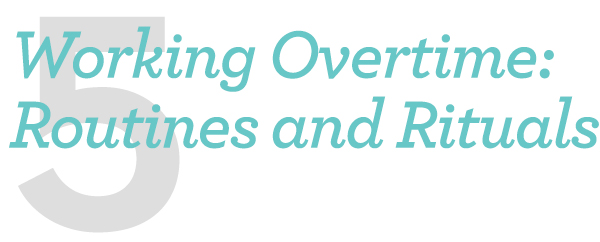
“I need a productivity app to help me set up this productivity app!” For this week’s episode of Working Overtime, host Isaac Butler helps co-host June Thomas adjust to life as a freelancer. With boundless free time comes the need for new routines to maintain creative muscles and stay on task. Then the hosts examine routines more broadly. Can lighting a candle set the perfect writing mood? Can a fresh drink and an hour of solitary reflection summon your muse? Joan Didion thought so. This podcast explores how routines and rituals can help or hurt creative work. Working Overtime podcast by Slate







